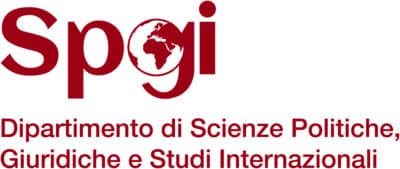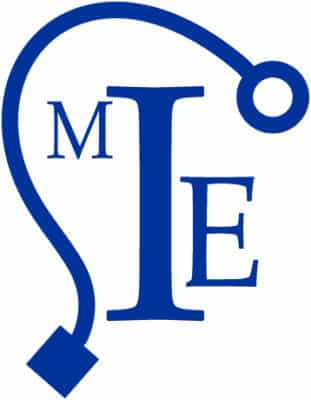

The First-level short specialisation degree in European Policies, Projects and Funding combines legal, historical, political and economic dimensions, for the purpose of providing participants with the analytical and practical tools to grasp the opportunities offered by the EU (and financial ones in particular) in the best way possible.
The course teaches how to navigate the system of European policies and funding, with reference both to European Structural and Investment Funds (ESIF) and to the programs managed by the European Commission directly. The analysis of the institutional and regulatory aspects is complemented by lessons on EU project management methods and techniques.
The First-level short specialisation degree in European Policies, Projects and Funding provides technical and professional competencies to:
- Analyze the political system and public policies of the European Union;
- Identify the political priorities of the European Union (environmental and social sustainability, energy transition, industrial competitiveness, etc.);
- Understand the opportunities offered by the European Union in terms of financial aid;
- Navigate in European legislation and its application at national and local level;
- Familiarize with the EU project design tools required to participate to tenders and manage European projects;
The Short specialisation degree and the single course are part of the academic offer for Lifelong Learning of Independent Assessment Bodies.
The First-level short specialisation degree in European Policies, Projects and Funding meets the educational needs of those who want to qualify professionally in the European policy and project planning areas. In particular:
- University students and graduates who want to approach the profession of European project writer;
- Professionals, public administrators and who work in companies, consultancy firms, trade or associations, which need to acquire or perfect knowledge and skills in the field of European planning;
- Consultants on European regulations and policies, with particular reference to the EU funding resource system;
- Experts on project-management applied to the European funding system;
- Researchers capable of conducting thematic surveys on the European integration process.
Job and career opportunities include: public administrations, consultancy firms, private companies, trade organizations, research bodies and non-profit organizations.
The First-level short specialisation degree in European Policies, Projects and Funding provides training on:
Political system and governance of the EU
The institutional and decision-making system of the EU, with particular reference to the following aspects: institutional arrangements, formal and informal decision-making processes, legislative instruments, budget and financial programmes.
EU project management
The European financial aid system, including project design and project management tools, types of grants and related management procedures. Teaching the use of the English language in design.
Policies and funding
The EU political agenda and financial tools in the area of:
- Innovation for business
Industrial policy in the European and global context, with particular reference to innovation and technology transfer processes. EU programs and funds for innovation and SMEs.
The final part of the module hosts a design laboratory developed in collaboration with the Chamber of Commerce of Padua and Eurosportello del Veneto.
- Sustainable Urban Development
The policies for sustainable urban development of the European Union in the perspective of the 2030 Agenda of the United Nations and of the main lines of action of the European Urban Agenda.
Interventions envisaged in the context of the cohesion policy, using the ESI Funds and some project lines of the direct thematic programs (in particular Horizon Europe and Life).
At the end of the module, a design workshop is carried out in collaboration with the Municipality of Padua and private sector experts focused on climate policies and energy transition.
- Social Inclusion and Immigration
The various aspects of EU social policies (citizenship, inclusion, employment, etc.), which are the subject of intervention by the ESI Funds. Migration policies, regulatory and financial instruments related to the protection and inclusion of immigrants.
The practical-operational activities of the module are carried out in a design laboratory in collaboration with the Association for Legal Studies on Immigration (ASGI).
EU project management
Teaching: 75 hours of in-person lessons/workshops/practice / 150 hours of individual study / 9 CFU
Period: January-February 2026
The course allows you to develop professional skills on the main tasks performed by project designers and project officers of organizations working with European projects.
The first workshop addresses the theme of the European grant system and its sources of information. After a theoretical overview of the topic, the students will carry out a practical exercise on a financial program of interest, on the related call for proposal and approved projects.
The second workshop represents the heart of the course and focuses on filling out the application form of a European tender starting from a real case study. The main project management tools and methods to be applied in this work will be presented: the logical framework approach, the theory of change, the work breakdown structure.
The last workshop is dedicated to the management of European projects. We will analyze the different types of subsidies envisaged by European tenders and the related management procedures. The exercise will be on the application of certain articles of the EU grant contract.
Interested students will be able to complete the training course with the development of a project work agreed with the teacher.
The general ranking of merit for the academic year 2025/26 will be published on the Italian page of this Second-level short specialisation degree according to the timing provided in the Call.
Single course
Information
FAQ
Classes will be held on Friday morning and afternoon sessions and on Saturday morning sessions from November 2025 to September 2026.
The teaching method is mixed: 70% of the lessons will take place in Padua, at the Department of Political, Legal and International Studies (SPGI) and 30% remotely, live on the Zoom platform.
The lectures will alternate with in-depth seminars conducted by experts. Through a series of thematic workshops, students will be able to experience the concrete application of the acquired knowledge, simulating the conception, development and management of European projects.
A professional internship of 200 hours is foreseen in institutions, consultancy firms or other organizations that collaborate with the Short specialisation degree.
As an alternative to the internship, the development of a project work is envisaged to be agreed with the course management.
Yes, the selection is open also to undergraduates who only need to take their final exam, provided that they acquire the required degree one day before the educational activities start. A self-certification attesting that the required degree has been acquired must be sent to the Doctorate and Post-Lauream Office – Short specialisation degree and Lifelong Learning Sector, before the beginning of the Short specialisation degree.
Yes, the Short specialisation degree’s Direction will offer stage opportunities at Bodies, consultancy firms or other organizations affiliated to the Short specialisation degree. You can also do your traineeship at a Body of your choice, and authorized by the Short specialisation degree’s Direction.
No, the traineeship is not included in the single course, and the project work is optional.
At the end of the course, apart from the Short specialisation degree’s Diploma, attendees will receive an open badge, to attest the disciplinary knowledge, soft skills and technical competencies acquired, in a digital form.

